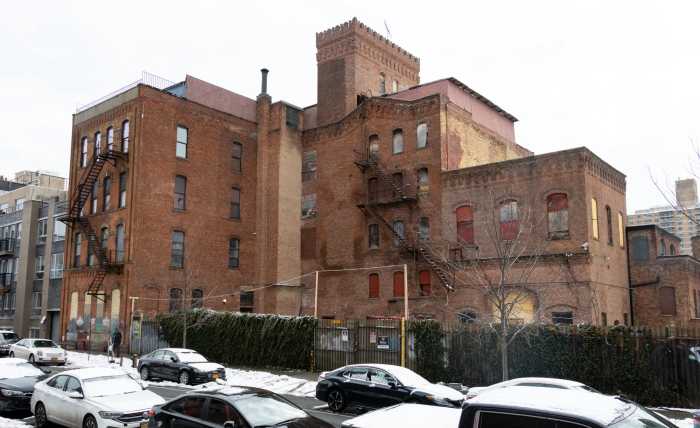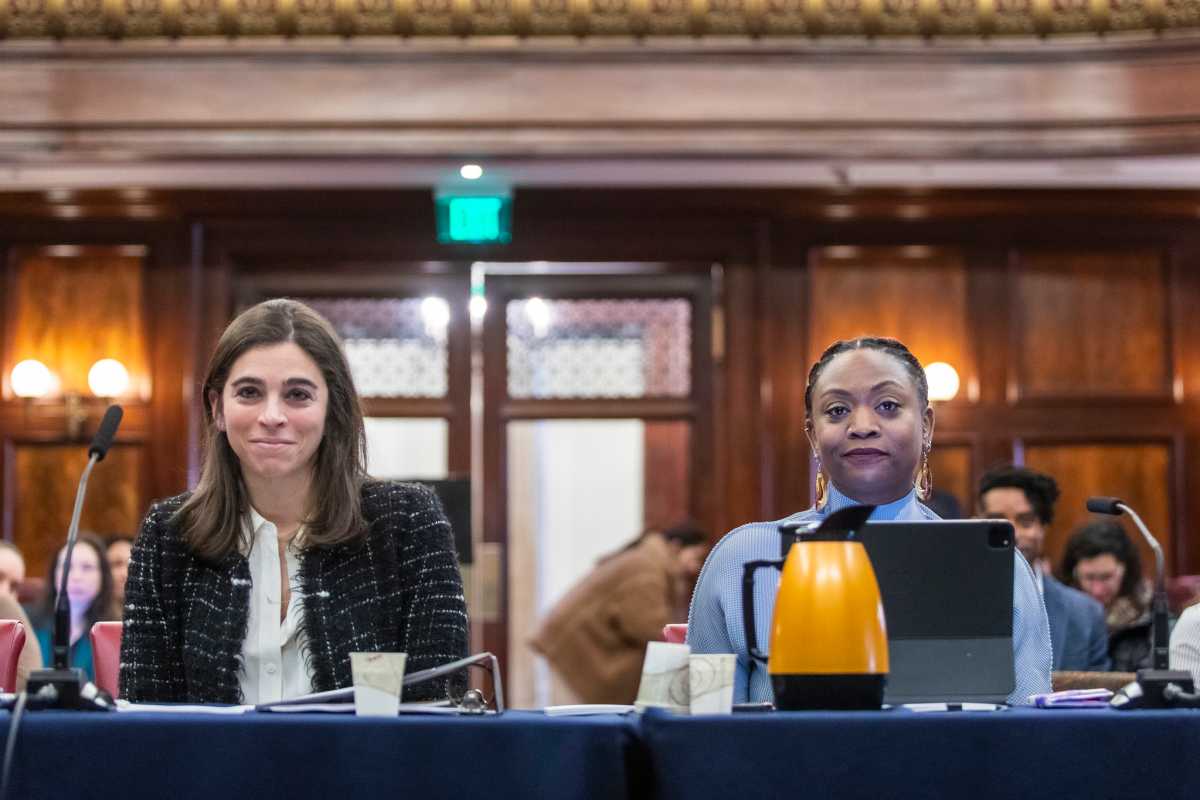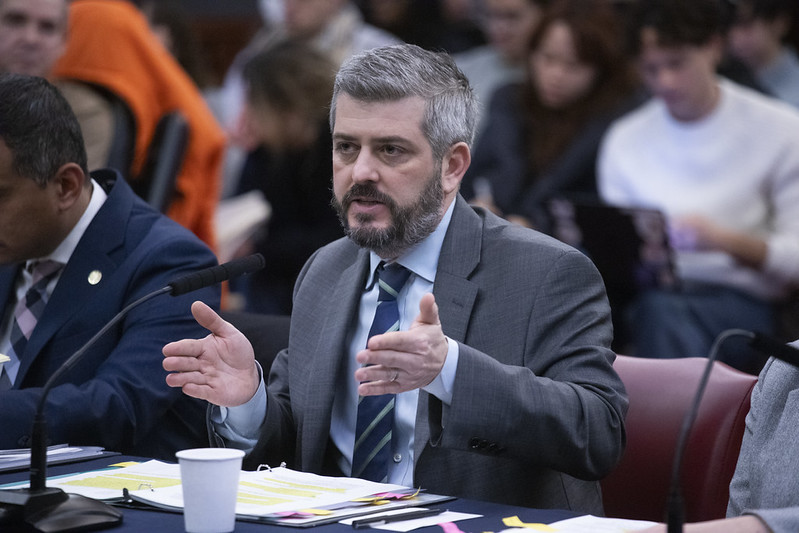Imagine it’s the Super Bowl. Your team is down by three points but
has the ball on the 1 yard line. Then the coach sends the quarterback
in … to take a knee.
Game over.
What happens next? The coach gets canned.
For Community Board 2, Tuesday’s vote on the Downtown Brooklyn Plan
was the big game, and they had it in their hands … and they blew
it.
The coach, in this case the board’s chairwoman, Shirley McRae, didn’t
make a bad call — she made no call at all. In fact, she literally
came into the most important vote the board will likely ever be asked
to make with no game plan.
What should happen next? McRae should resign her executive position, if
not remove herself from the board all together.
And she’s not the only one.
Ten board members could not be bothered to attend the momentous vote,
or send their proxy; three board members abstained from voting and one,
incredibly, came to the meeting and then hid in the hallway to avoid voting.
She should get the boot first. Her name is Rachel Foster, and she is an
appointee of Councilman David Yassky.
McRae was appointed originally by the late Councilwoman Mary Pinkett.
She now serves at the pleasure of Councilwoman Letitia James.
All board members ultimately serve under the appointing authority of the
borough president.
After her ill-prepared board failed to reach a consensus on the one vote
they took, McRae had the gall to say it was not her role to tell board
members to make a motion.
Foster, the one who hid, claimed she was too intimidated by the 400 or
so anti-Nets arena and anti-eminent domain protesters in the audience,
according to a source. Given the circumstances of the confusing vote,
and the confusion of many of the protesters as to what was being voted
on, she had nothing to worry about.
I think we can do better on the board without her cowering and McRae’s
hands-off leadership style.
With the responsibility of rendering a recommendation on the most sweeping
redevelopment proposal this borough has ever seen, McRae allowed her board,
through either gross incompetence or a willful desire not to get in the
way of the dream of developers that would turn Brooklyn into Manhattan,
to take itself out of the process.
The board is chosen to represent the community. In the Uniform Land Use
Review Procedure (ULURP) the board is the first to review an application,
the first to hold a public hearing, and the first to render a recommendation.
That recommendation goes to the borough president and to the City Planning
Commission and is generally taken into consideration (although with a
majority of the planning commissioners serving at the pleasure of the
mayor, the fix may well be in at that level of review).
Still, especially since the city rushed such a voluminous and complicated
proposal before them — dumping the 210-page ULURP application on
the board right before the December holidays, leaving less than the required
60 days for actual consideration — the chairwoman should have scheduled
a special meeting for her members to discuss and clarify each action within
the plan before the meeting at which they were to vote.
The board’s job was not to decided whether or not to make a recommendation
— it’s job was to decide what to recommend.
To quote from ULURP rules in the City Charter: “The community board
may include in its submission the reasons for the vote and any conditions
attached to its vote. The community board may state that its conditional
approval shall be considered a negative recommendation … if conditions
that it considers essential to minimize land use or environmental impacts
are not adopted by the [City Planning] Commission.”
With such an involved plan before them — in which the city has unfairly
combined a massive rezoning with a massive urban renewal expansion to
allow for a massive build-up — it was essential that the board be
instructed to vote separately on the rezoning proposals and the urban
renewal-eminent domain proposals within the plan, or at least separately
vote on each of the land use committee’s five recommendations.
Those votes would have formed the basis for an overall recommendation,
which could have been made conditional.
Board member Ken Diamondstone got it. He stood up and called for an item
by item vote. His fellow board members, including the chairwoman, overwhelmingly
shot that proposal down.
McRae just stood by and watched as her board relinquished the community’s
right to weigh in. She rendered herself and her board irrelevant. Someone
in authority should make it official.
Neil Sloane is the editor of The Brooklyn Papers. E-mail: Newsroom@BrooklynPapers.com
























